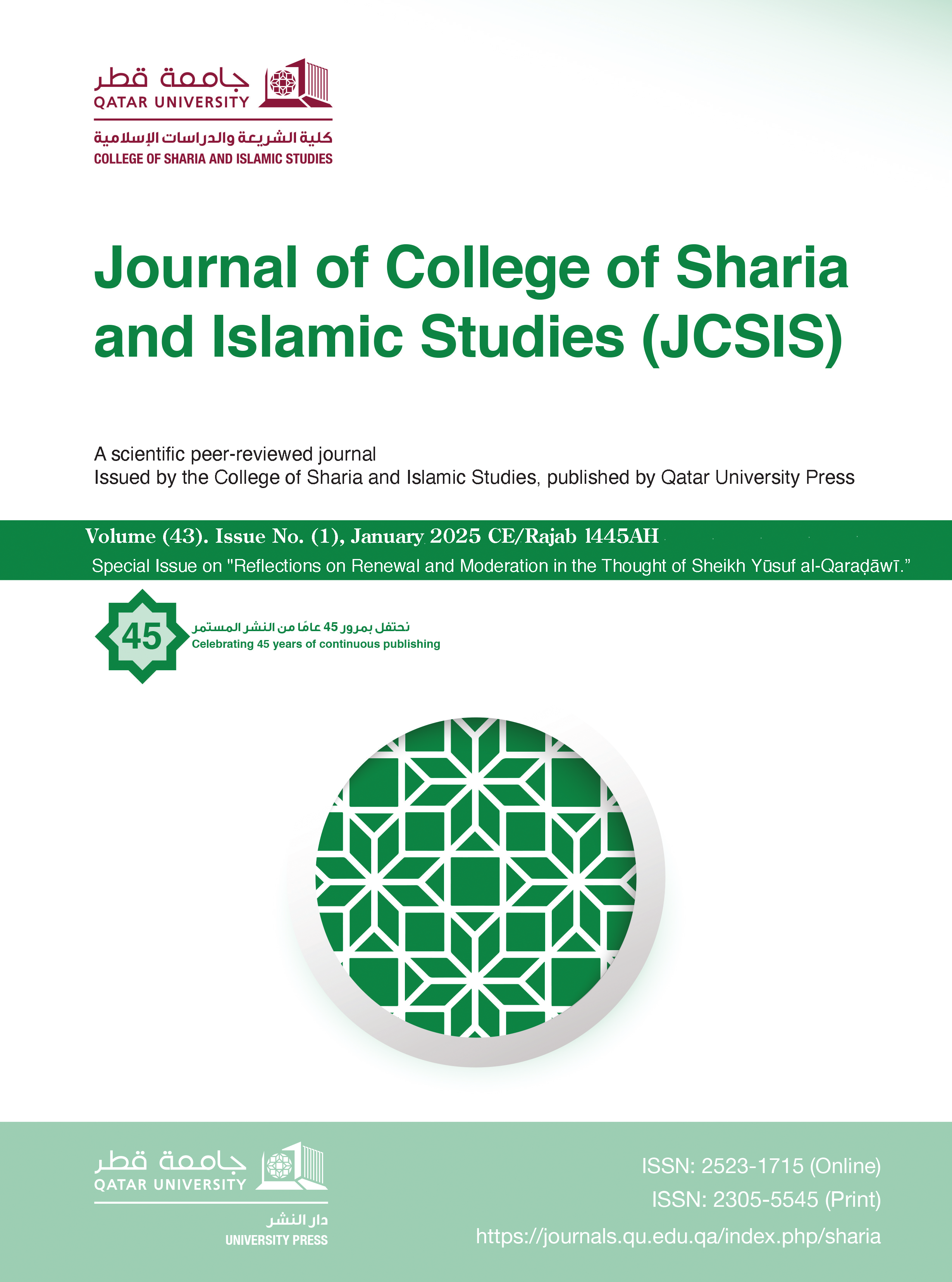Aspects of Maqāṣid-Based Renewal and Its Impact on Fatwas Involving Women and the Family by Sheikh Yūsuf al-Qaraḍāwī
Abstract
Objectives: This study aims to clarify the essence of maqāṣid-based renewal (renewal based on the higher objectives of the Sharia), examine Sheikh Yūsuf al-Qaraḍāwī’s approach in this field, highlight his most significant contributions, and assess the effectiveness of these contributions in addressing issues related to women and the family.
Methodology: This study employs a descriptive method to detail definitions, rulings, and fatwas, an inductive method to trace statements on maqāṣid to form a comprehensive view of the Sheikh’s contributions, and an analytical method to examine the definition and manifestations of maqāṣid-based renewal, and its application in family and women’s issues.
Results: The outcome of this study is that independent reasoning (ijtihād) based on the higher objectives (maqāṣid) of the law is one of the most effective ways to renew Islamic society. It affirms the suitability of Islamic law for all times and places and is essential for advancing the progress of ijtihād. A safeguard against misplaced calls for innovation or abrogation, it preserves or awakens what we would naturally be inclined to do. These are the very objectives that the contributions of the Sheikh sought to achieve.
Originality: Maqāṣid-based ijtihād was known to early scholars, and contemporary legal experts have increasingly adopted it as a method for deriving rulings. The approach was illustrated with examples from Sheikh al-Qaraḍāwī’s fatwas on women and the family, which, despite extensive discussion over time, have rarely been presented convincingly as the Sheikh managed to do, establishing the necessity of its application in addressing future issues in society.


